University Name: Business Ethics and Oil Sands Case Study
VerifiedAdded on 2020/03/02
|5
|723
|39
Case Study
AI Summary
This case study examines the ethical and corporate governance issues surrounding the oil sands industry in Canada. It explores the ethical dilemmas related to environmental impact, stakeholder interests (government, producers, and environmental groups), and the application of ethical frameworks like utilitarianism and the consideration of the environment as a stakeholder. The analysis highlights the importance of the triple bottom line approach (people, planet, profit) to achieve ethical and socially responsible outcomes, focusing on sustainability and environmental protection. The assignment also connects these issues to real-world scenarios, such as personal transportation choices and their broader implications. The student considers the ethical considerations of using fossil fuels versus renewable energy sources, addressing potential impacts on future generations and the environment. The study emphasizes the need for responsible business practices and sustainable solutions within the oil sands industry.
1 out of 5
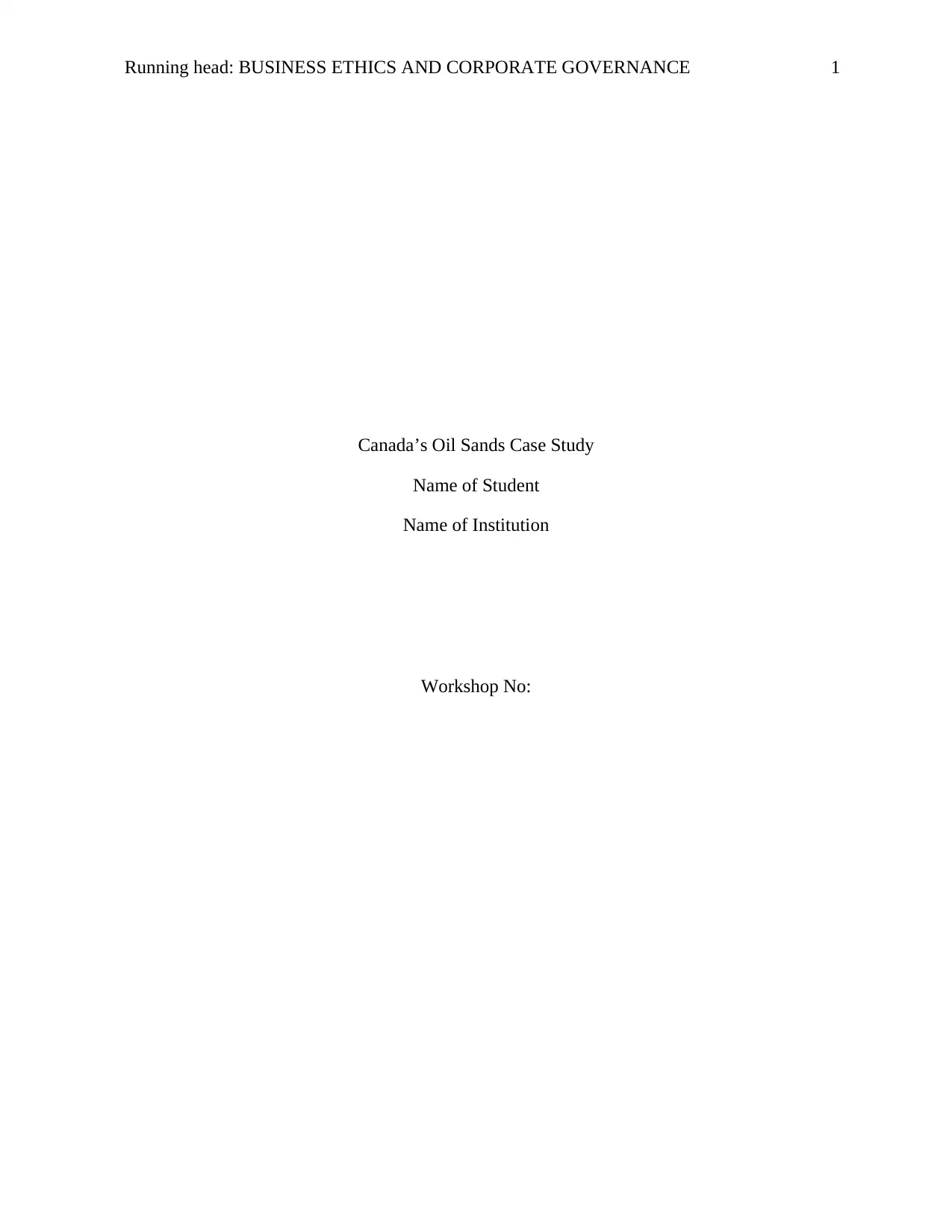
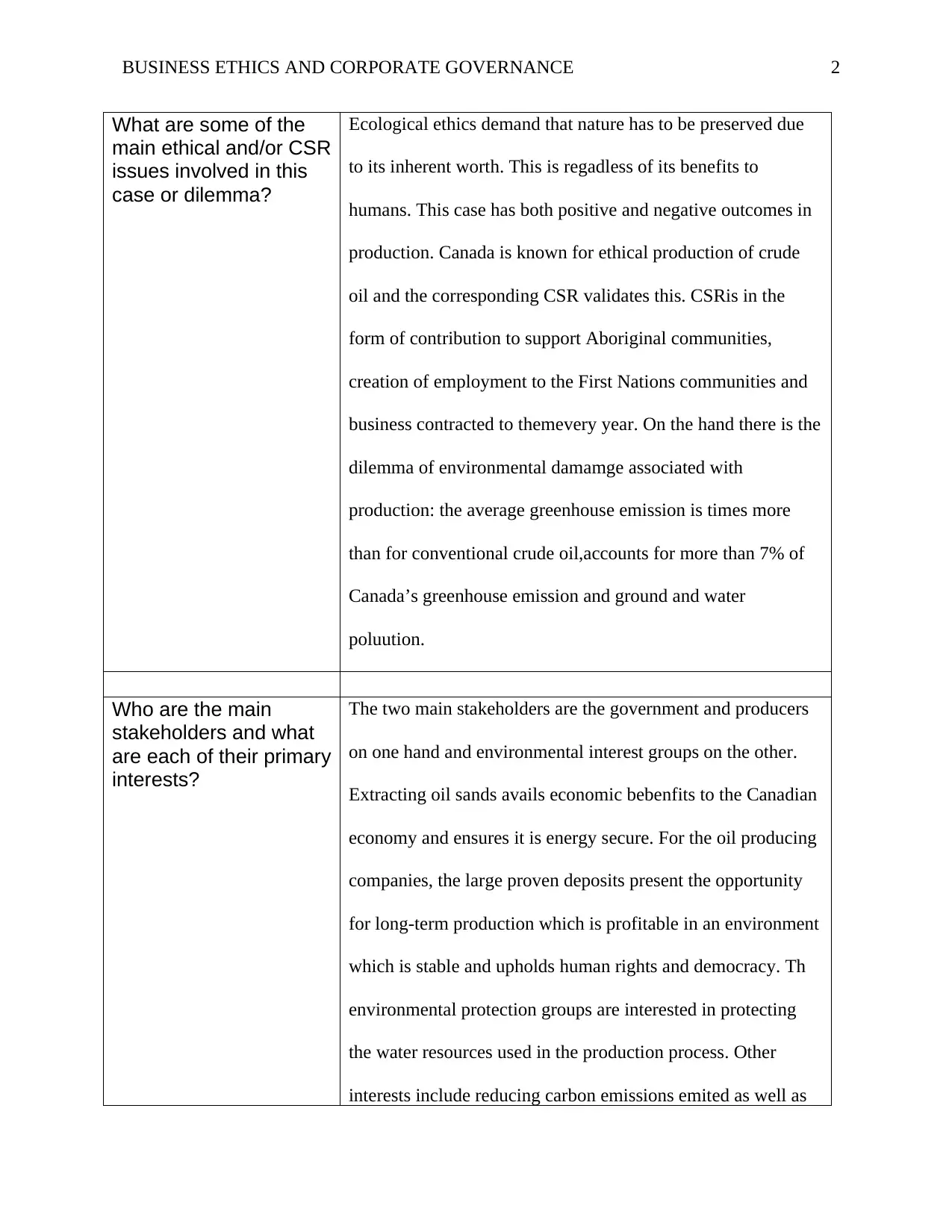
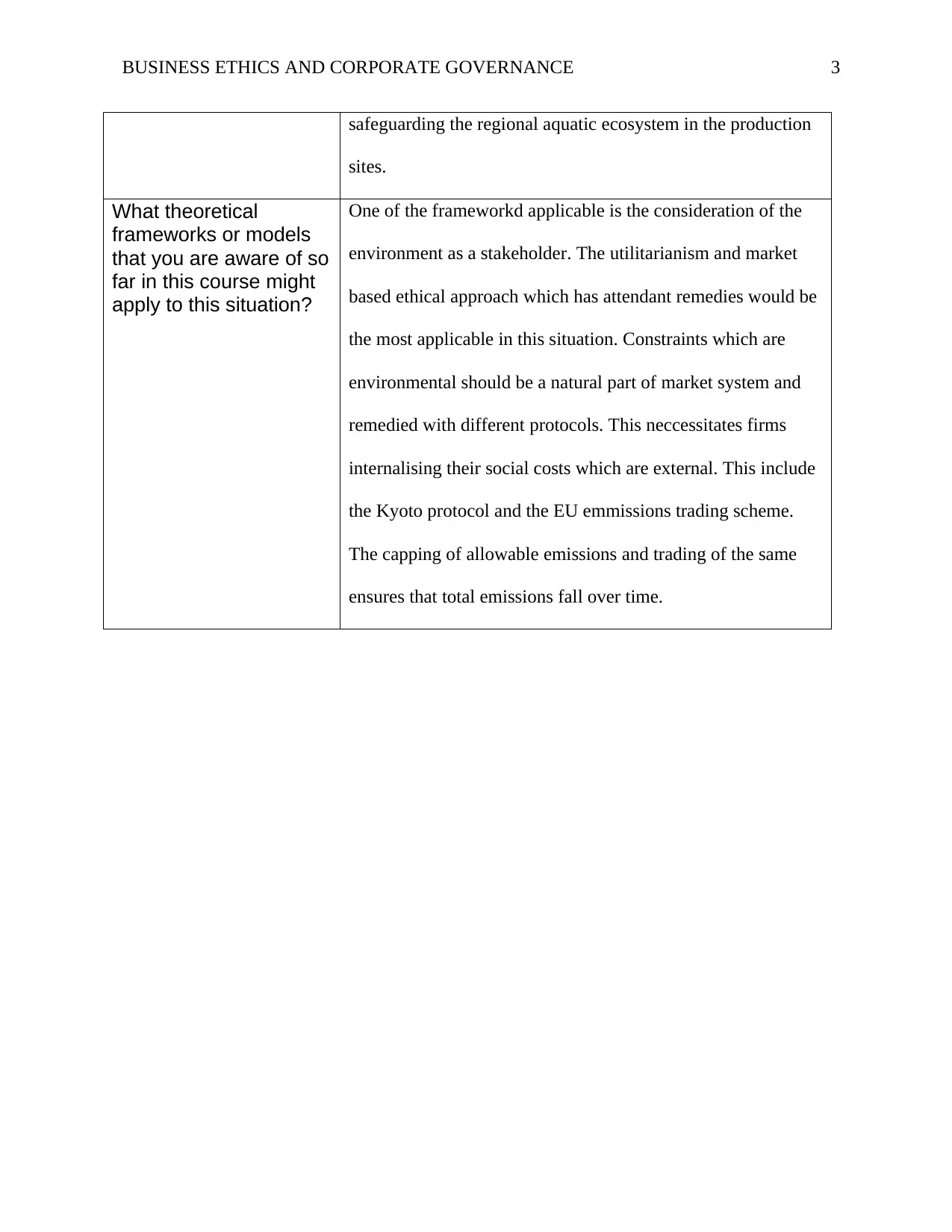

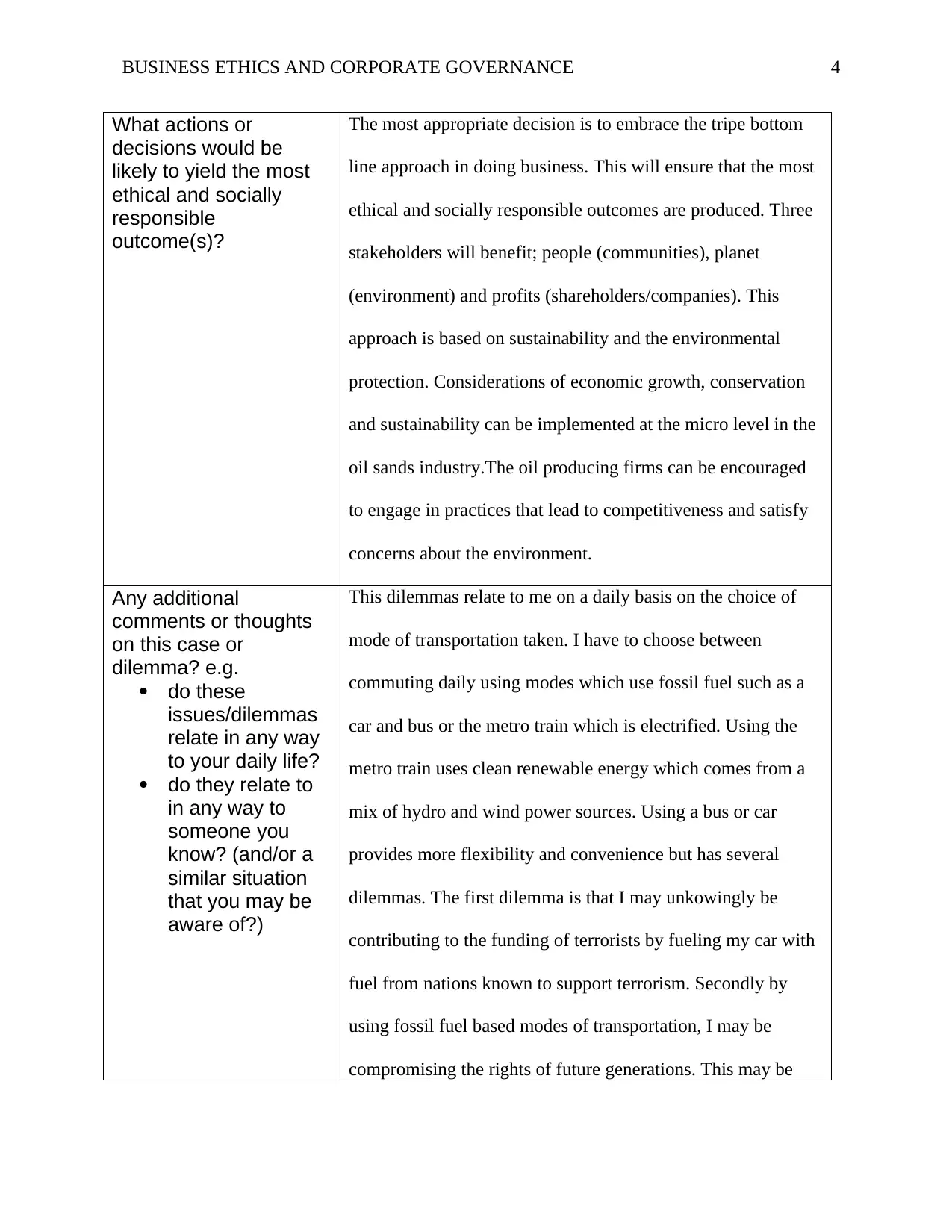
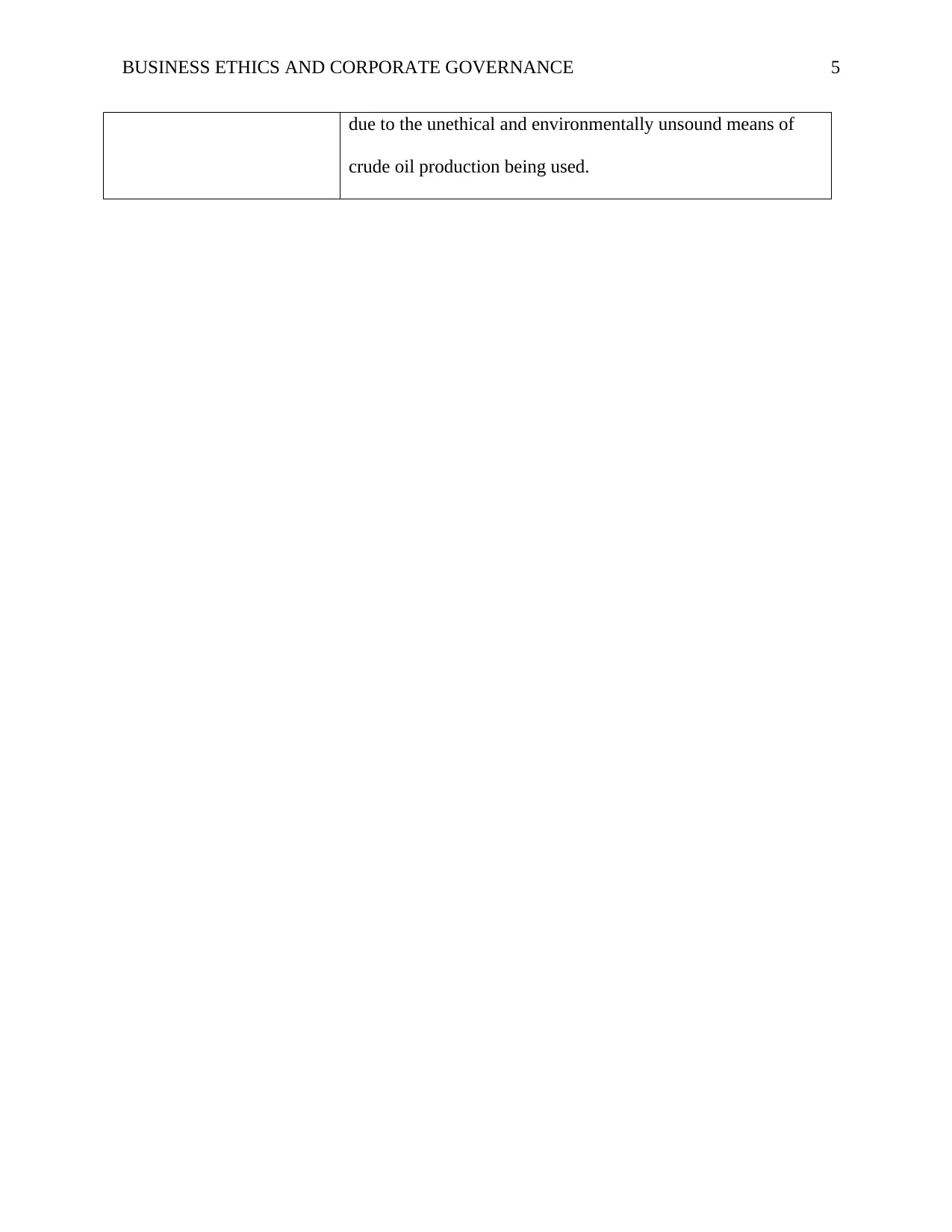






![[object Object]](/_next/static/media/star-bottom.7253800d.svg)